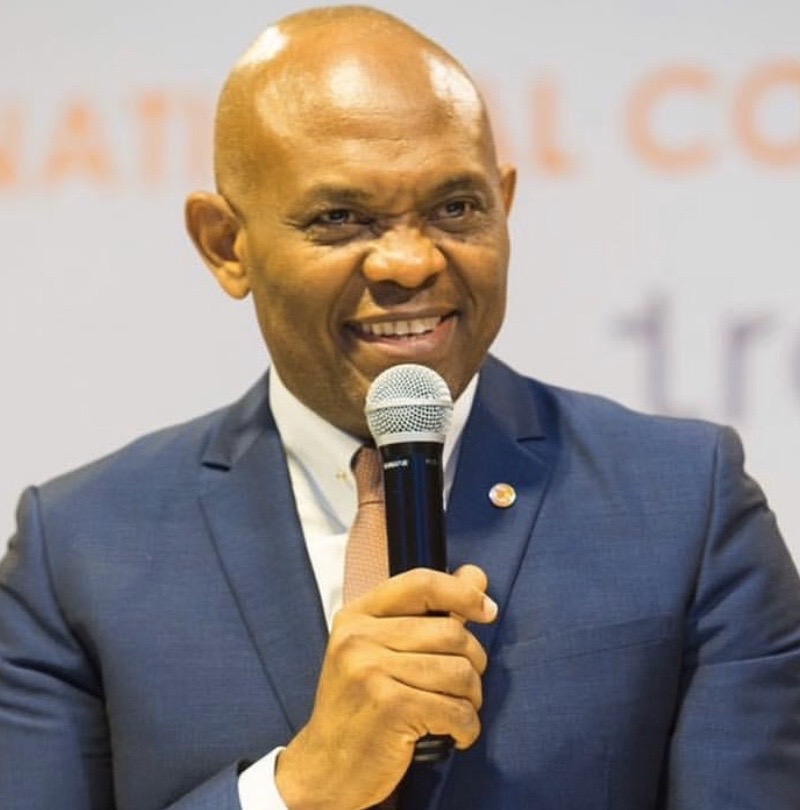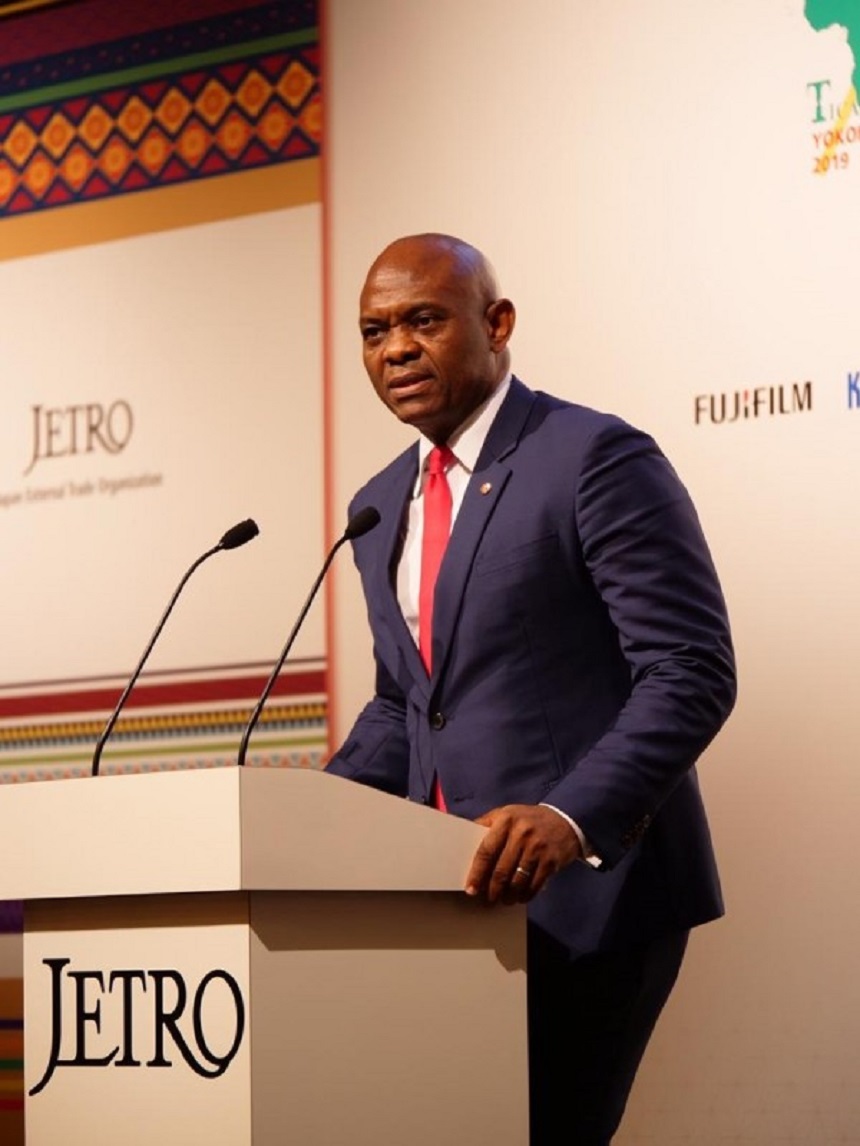Banking
As UBA Plc Prepares For Recapitalization

By Funsho Arogundade
For the United Bank for Africa (UBA Plc), its rich history is matchless. With its origins dating back to 1949, the bank, which prides itself as Africa’s global bank, has carved its niche as a leading financial institution in sub-Saharan Africa, growing into one of the continent’s most influential banks.
UBA’s evolution from a local Nigerian bank to a pan-African and global financial institution is remarkable. Its ability to balance its African identity with a global outlook has made it one of the most trusted and dynamic banks on the continent.
Of course, much has been said about the bank’s qualitative and quantitative values. For millions of UBA customers and its present —and prospective— shareholders, there is a guarantee qualitatively non-numeric value of the bank’s solid business model, firm brand value, competitive edge, and most importantly, a list of bright minds on its roster led by quick-witted entrepreneur, Tony Onyeamechi Elumelu —as Chairman— running its operations. Even, on its numeric value, the banking behemoth has consistently maintained a strong balance sheet.
Over the years, UBA has demonstrated sound financial management, risk mitigation, and strong capital adequacy ratios, all of which have contributed to its robust financial standing.
Many would recall the heydays of the banking sector consolidation boom between 2005 and 2007. Perhaps no other bank took, more seriously, to heart, the call by the then Central Bank of Nigeria (CBN) Governor, Charles Chukwuma Soludo, that Nigeria banks should aspire to be global players like UBA did. While many other banks also hearkened to that call, given the overwhelming advantages such economies of scale would bring to a bank, the then Tony Elumelu-led management of UBA quickly set about rebranding the bank as ‘Africa’s Global Bank’. Within a few years, the bank got full commercial licenses in many countries with these offshore branches adding value to the bank’s operations and diversifying its revenue base.
Over the decades, the bank has scaled its expansion offshore and forged ahead to increase its presence on the continent and today it stands out with its unique blend of a strong African identity and a global vision that spans across 20 African countries, as well as key international financial hubs, including New York, London, Paris, and Dubai.
“Our success is a testament to the effectiveness of UBA’s global strategy and our role as the financial intermediary for Africa and the world,” Elumelu said.
UBA has indeed created opportunities for millions of Africans to open accounts, secure loans, and engage in financial activities that were previously out of reach. This wide-reaching approach to financial inclusion aligns with UBA’s broader goal of contributing to economic empowerment across the continent. By making financial services accessible, UBA is supporting small and medium-sized enterprises (SMEs), agriculture, and other sectors that are vital to African economies.
The bank’s balance sheet, which has grown steadily, is now heavily driven by its African operations. In fact, over 50% of its balance sheet is derived from its African subsidiaries —a remarkable milestone that underscores UBA’s deep integration into the economies across the continent.
The Group’s results, which were released to the Nigerian Exchange Limited (NGX) on Friday 3 May 2024, saw outstanding year-on-year increases: Gross Earnings rose by 110%, from N271.1 billion to N570.2 billion; Interest Income grew by 130%, to N440.7 billion. Operating Income increased by 115%, from N175.7 billion in 2023 to N378.59 billion.
Further consolidating the record performance delivered in the Group’s 2023 Full Year Audited Financials, UBA again saw Profit Before Tax rising significantly by 155% from N61.7 billion in Q1 2023 to N156.34 billion in Q1 2024; while Profit After Tax jumped from N53.5 billion to N142.5 billion, representing an impressive rise of 165% year-on-year.
“The vision of going into these countries is paying off and will continue to pay off. We will continue to invest in Africa and deepen our market share. Our market share in those countries is improving and if you go to some of these countries, UBA is one of the top three banks and they appreciate the contribution of the bank to their economy,” said Oliver Alawuba, the Group Managing Director of UBA Plc.
With nearly two decades since the last recapitalisation effort, the banking sector is once again poised to play a crucial role in accelerating economic growth and achieving the Nigerian government’s 2030 vision of a trillion-dollar economy.
On 28 March 2024, the CBN announced a directive for banks in Nigeria to recapitalize with the pivotal objectives of strengthening the banking industry and mitigating systemic risks. The CBN’s new guidelines on the minimum capital requirement for banks range from N50 billion to N500 billion —depending on the type of licence held by the bank— and the fresh funds must not necessarily be related to the existing shareholder funds. In total, approximately N4.14 trillion is expected to be raised between now and March 31, 2026.
Experts have said true financial security and wealth creation comes from owning assets whether stocks, bonds, or a piece of real estate. In all, as they encourage people to own assets of different classes, they are always making a case for people to own shares of banks, especially UBA Plc whose share stood at N24.25 per unit at the close of Wednesday’s trading.
These analysts relayed their trust and overall satisfaction with the bank, as well as recommended it to other investors. They rated the bank on five criteria: trustworthiness, terms and conditions (such as fees and rates), customer service (wait times and helpfulness of employees), digital services (ease of using the website and app), and quality of financial advice.
However, a significantly challenged macroeconomic environment, characterised by high inflation following the significant devaluation of the naira, presents a more difficult hurdle for banks this time around. But despite Nigeria’s macro headwinds which trigger the proposed upward review of the banks’ capital base, Alawuba exercises no fear with UBA’s huge customer deposits of N18 trillion, shareholders’ fund of N2 trillion and customer base of about 45 million across Africa. Indeed, UBA operates with the highest licence available —which is an international licence.
On the value proposition of UBA to investors ahead of the fresh banking sector recapitalisation, the UBA GMD speaks more with a strong conviction; ”UBA is that bank that investors can look onto. In 2023, our capital appreciation was one of the highest on the exchange. For the past two years, our dividend yield has been above 12% and when you look at the bank presence in 24 countries, it shows a diversification of income stream but also highlights the unique investment proposition we offer,” Alawuba said.
While projecting that the shares of UBA could hit N100 per unit on the stock exchange, the bank boss added, “When you invest in UBA shares, you are essentially gaining exposure to the economic potential of 24 different markets. Therefore, it is crucial for us to communicate to Nigerian investors that UBA’s current share price is undervalued, presenting a substantial opportunity for those looking to invest in a bank with a truly global footprint.”
With a focus on sustainability, innovation, and inclusivity, UBA is not only a financial institution but a key enabler of Africa’s long-term growth and global integration. These have positioned the bank well for the future.
With generous bonuses and promotions and a variety of products, UBA has become a popular choice for consumers across the continent.
As the bank celebrates 75 years, it reassures customers of its commitment to strong corporate governance built on the foundation of trust, adaptability, strong relationships, innovation, and service excellence.
Banking
Public Offer: Sterling Holdco Allots 13.812 billion Shares to 18,276 Shareholders

By Aduragbemi Omiyale
Sterling Financial Holdings Company Plc has allotted shares from its public offer of 2025 to investors with valid applications.
The allotment follows the earlier receipt of final approval from the Central Bank of Nigeria (CBN) and the recent clearance by the Securities and Exchange Commission (SEC).
In September 2025, the financial institution offered for sale about 12,581,000,000 ordinary shares of 50 kobo each at N7.00 per share in public offer.
However, the exercise received wide participation from the investing public, with the company getting 18,280 applications for 16,839,524,401 ordinary shares valued at approximately N117.88 billion.
Following a thorough verification process, valid applications were received from 18,276 shareholders for a total of 13,812,239,000 ordinary shares, representing a subscription level of 109.79 per cent and reflecting sustained confidence in Sterling Holdco’s strategic direction, governance, and long-term growth prospects.
The firm approached the capital market for additional funds for the recapitalisation of its two flagship subsidiaries, Sterling Bank and The Alternative Bank.
The capital injection will support the commencement of full operations and contribute to the group’s revenue diversification objectives.
In line with the guidelines set out in the offer prospectus, Sterling Holdco confirmed that all valid applications will be allotted in full. Every investor who complied with the terms of the offer will receive all the shares for which they applied.
A very small number of applications were not processed or were partially rejected due to non-compliance with the offer terms, including duplicate payments and failure to meet the minimum subscription requirement of 1,000 units or its multiples, as stipulated in the offer documents.
The group ensures a seamless post-offer process, with refunds for excess or rejected applications, along with applicable interest, to be remitted via Real Time Gross Settlement or NIBSS Electronic Funds Transfer directly to the bank accounts detailed in the application forms.
Simultaneously, the electronic allotment of shares has be credited to successful shareholders’ accounts with the Central Securities Clearing System (CSCS) on February 17, and for applicants who do not currently have CSCS accounts, their allotted shares will be temporarily held in a registrar-managed pool account pending the submission of their completed account opening documentation to Pace Registrars Limited, after which the shares will be transferred to their personal CSCS accounts.
Banking
CBN Governor Seeks Coordinated Digital Payment Reforms

By Modupe Gbadeyanka
To drive inclusive growth, strengthen financial stability, and deepen global financial integration across developing economies, there must be coordinated reforms in digital cross-border payments.
This was the submission of the Governor of the Central Bank of Nigeria (CBN), Mr Olayemi Cardoso, at the G‑24 Technical Group Meetings in Abuja on Thursday, February 19, 2026.
According to him, high remittance costs, settlement delays, fragmented systems, and heavy compliance burdens still limit the participation of households and Micro, Small and Medium Enterprises (MSMEs) in global trade.
The central banker emphasised that efficient payment systems are essential for economic inclusion, highlighting that global remittance corridors still incur average costs above 6 per cent, with settlement delays of several days, excluding millions from modern economic activity.
Mr Cardoso cautioned that while digital payments present significant opportunities, they also carry risks such as currency substitution, weakened monetary transmission, increased FX volatility, capital-flow pressures, and regulatory fragmentation.
The G-24 TGM 2026, themed Mobilising finance for sustainable, inclusive, and job-rich transformation, convened global financial stakeholders to advance the modernisation of finance in support of emerging and developing economies.
The CBN chief reaffirmed Nigeria’s commitment to working with G-24 members, the IMF, the World Bank Group, and other partners to build a more inclusive, resilient, and development-oriented global financial architecture.
“We have strengthened our AML/CFT frameworks in line with FATF guidelines, requiring strict dual-screening of cross-border transactions to mitigate risks.
“To deepen regional integration, the CBN introduced simplified KYC/AML requirements for low-value cross-border transactions to encourage broader participation in PAPSS, easing processes for Nigerian SMEs and enabling faster intra-African trade payments.
“We have also embraced fintech innovation through our Regulatory Sandbox, allowing payment-focused fintechs to test secure, instant cross-border solutions under close CBN supervision,” he disclosed.

Banking
Unity Bank, Providus Bank Merger Awaits Final Court Approval

By Modupe Gbadeyanka
The merger and business combination between Unity Bank Plc and Providus Bank Limited remains firmly on course, a statement from one of the parties disclosed.
According to Unity Bank, there is no iota of truth in reports in certain sections of the media suggesting that the merger process had stalled, as the transaction remains firmly on track.
It was disclosed that the necessary regulatory steps have been completed, but only a few other steps to finalise the transaction, especially the final court sanction.
There had been speculations that both lenders may not meet the new minimum capital requirement of the Central Bank of Nigeria (CBN) before the March 31, 2026, deadline.
However, it was noted that the combined capital base of Unity Bank and Providus Bank exceeds N200 billion, which is the minimum requirement to retain a national banking licence under the CBN’s recapitalisation framework.
When completed, the Unity-Providus merger is expected to deliver a stronger, more competitive, and customer-centric financial institution — one with the scale, innovation, and reach to redefine the retail and SME banking landscape in Nigeria.
“The merger with Providus Bank significantly enhances our capital base, operational capacity, and strategic positioning.
“We are confident that the combined institution will be better equipped to support economic growth and deliver innovative financial solutions across Nigeria,” the chief executive of Unity Bank, Mr Ebenezer Kolawole, stated.
Recall that a few months ago, shareholders authorised the merger between the two entities at Court-Ordered Meetings. They also adopted the scheme of merger at their respective Extraordinary General Meetings (EGMs) in September 2025,
The central bank also backed the merger, with a pivotal financial accommodation to support the transaction. The merger also received a further boost with a “no objection” nod from the Securities and Exchange Commission (SEC).
The regulatory approvals form part of broader efforts to strengthen the resilience of Nigeria’s banking system, reinforce capital adequacy across the sector, and mitigate potential systemic risks.
The development positions the combined entity among the 21 banks that have satisfied the apex bank’s new capital threshold for national banking operations.
-

 Feature/OPED6 years ago
Feature/OPED6 years agoDavos was Different this year
-
Travel/Tourism10 years ago
Lagos Seals Western Lodge Hotel In Ikorodu
-

 Showbiz3 years ago
Showbiz3 years agoEstranged Lover Releases Videos of Empress Njamah Bathing
-

 Banking8 years ago
Banking8 years agoSort Codes of GTBank Branches in Nigeria
-

 Economy3 years ago
Economy3 years agoSubsidy Removal: CNG at N130 Per Litre Cheaper Than Petrol—IPMAN
-

 Banking3 years ago
Banking3 years agoSort Codes of UBA Branches in Nigeria
-

 Banking3 years ago
Banking3 years agoFirst Bank Announces Planned Downtime
-

 Sports3 years ago
Sports3 years agoHighest Paid Nigerian Footballer – How Much Do Nigerian Footballers Earn





















